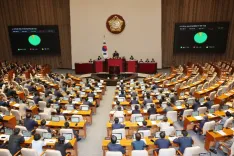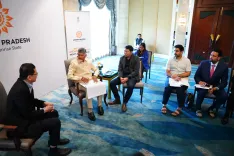Will the Centre Impose GST on UPI Transactions Over Rs 2,000?

Synopsis
Key Takeaways
- No GST will be levied on UPI transactions above Rs 2,000.
- The GST Council has not recommended such a tax.
- Karnataka's state government issued the GST notices, not the Centre.
- Concerns arose after traders received unexpected tax notices.
- Government aims to assure transparency in digital transactions.
New Delhi, July 27 (NationPress) The government has confirmed that it does not intend to impose goods and services tax (GST) on transactions made via the unified payments interface (UPI) that exceed Rs 2,000.
Pankaj Chaudhary, Minister of State for Finance, stated in the Rajya Sabha that "there is no recommendation from the GST Council to levy GST on UPI transactions above Rs 2,000".
In response to inquiries regarding a potential proposal for GST on UPI transactions surpassing Rs 2,000, the minister informed the House that GST rates and exemptions are determined based on the GST Council's recommendations.
This clarification followed reports that traders in Karnataka had received GST demand notices linked to UPI transaction data.
The Minister for Food, Public Distribution, and Consumer Affairs, Pralhad Joshi, also mentioned last week that the GST notices sent to small traders in Karnataka originated from the state government, not the Central government.
In response to Deputy Chief Minister D.K. Shivakumar’s assertion that the state had no involvement in issuing tax notices, Joshi labeled the claim as "utterly ridiculous."
"It is the commercial tax officials of Karnataka who have issued these GST dues notices to small traders. The state government is misleading the public by denying its role. This is merely an attempt to evade responsibility," Joshi argued.
"If these GST notices had been issued by the central government, traders in various other states would have received them too. However, that hasn’t occurred elsewhere. Why are these notices only being dispatched in Karnataka?" Joshi questioned.
He clarified that under GST, there are two components – CGST (Central GST) governed by the central government and SGST (State GST) governed by state governments. The notices received by small traders in Karnataka were issued by the state’s Commercial Tax Department.









